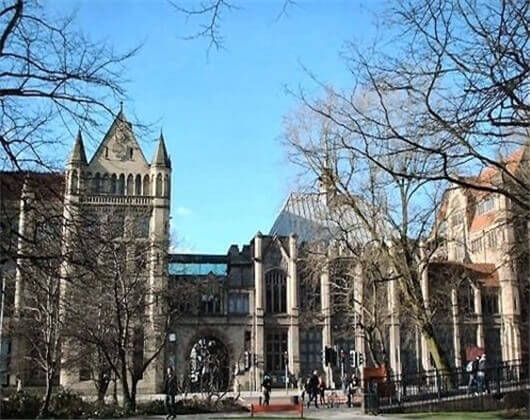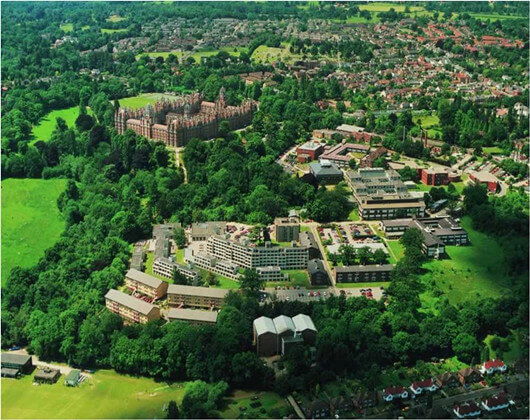Key features of this programme: Focuses on the molecular and cellular aspects of biotechnology Includes material on fermentation, process and downstream engineering, and business aspects A mixture of taught material and lab-based research projects Teaching and research at one of the UK's top Schools of Biosciences Who is this programme aimed at? Those looking for a future in a biotechnology or an other life sciences related industry Those interested in pursuing a research career in life sciences in industry or academia Those returning from industry to obtain higher qualifications Open all sections Modules Modules (all core) are as follows: Introduction to Biotechnology: From genes to products Research Techniques in Molecular Biotechnology Practical Applications of Molecular Biotechnology Functional Genomics and Reverse Genetics Gene Expression Analysis Funding and Communicating Science Pharmaceuticals & Therapeutic Biologicals from Bench to Market Research project Learning and teaching is via lectures, workshops, independent study, laboratory practicals, research and a lab-based project. Module descriptions for MSc in Molecular Biotechnology Introduction to Biotechnology: From genes to products Description: This module will teach the practical skills which you require in your lab projects and in a practical modules, revise some areas which some students traditionally find challenging (handling concepts of concentration and dilution), and look in lectures and discussion sessions at the history, development, and current shape of the worldwide biotechnology industry and the employment opportunities within it. Research Techniques in Molecular Biotechnology Description: This module is intended to provide in-depth research training. Sessions are designed to give you an appreciation of, and enhance your knowledge of, modern techniques in molecular and cellular biology, for all of which the University of Birmingham has world-class facilities. Members of staff present details of different techniques, with examples including animal cell culture; high throughput DNA sequencing; cell manipulation, transfection & micro-injection; protein expression and purification; microscopy and cell sorting; circular dichroism, fluorescence & absorbance; reporter gene technology; immunodiagnostics; NMR spectroscopy; mass spectrometry; and X-Ray crystallography. Some sessions will include tours of the laboratories and a chance to work on data generated using the above methods. Workshops tackle open-ended research problems using some of the above methods. Practical Applications of Molecular Biotechnology Description: This continuously assessed practical module will focus on techniques used in molecular biotechnology. The first of two major groups of activities will involve preliminary experiments to learn the basic techniques necessary to prepare fermentation experiments designed to produce a difficult recombinant protein. Then students will work in teams of 4 or 5 to complete a fermentation experiment. They will individually write reports of each group of experiments, the second of which must be presented in the form of a paper suitable for submission to a specified journal. The assessments will be based on all four components, the performance in the laboratory, and the quality of the written reports, Pharmaceuticals and Therapeutic Biologicals from Bench to Market Description: The module covers the typical “time-line” of drug product development, Key activities, issues and importance of stages in drug product development: drug discovery, developability, pre-clinical studies, formulation, clinical trials, primary and secondary manufacturing, marketing and post marketing activities, Patents and intellectual property, The regulatory and quality environment of the pharmaceutical industry, and quality by design approaches to pharmaceutical manufacturing. Funding and Communicating Science Description: In this module you engage in an activity designed to develop your entrepreneurial and business skills in a science context and develop team working skills. A mini-course is held on writing grants and business plans, after which you work in small groups on a topic of your choice for an application. A series of presentations and feedback sessions lead to final presentations where each group presents their proposal or business plan to the other students, who have to provide a written critique of the proposal. Functional Genomics and Reverse Genetics Description: This module will explain current methods of exploring and confirming the nature of candidate genes underlying quantitative and major gene traits. It will cover functional genomic and molecular genetic techniques including forward and reverse genetic approaches, gene cloning, functional analysis of genes via knock-out and knock-in technologies, and techniques for analysing protein function within an organism. We will also cover more general topics relevant to modern functional genomics "in practice”. Examples of recent project titles offered to MSc Molecular Biotechnology students The role of nuclear envelope in controlling meiotic progression and meiotic recombination in Plant meiosis The progression of meiosis in Brassica oleracea and related polyploids Computational analysis of 3D cell shape change in plants Implementation of the CRISPR‐Cas9 to tag genes in yeast Promoter organization in bacteria Identifying Bacterial species associated with moss spores Development of liquid extraction surface analysis mass spectrometry for the analysis of proteins How does arginine methylation regulate the transcription factor c‐MYC in cancer? Engineering M13 Bacteriophage to produce new nano‐structures Self Cleaning Surfaces: Preventing the Spread of Infection Development and optimization of workflows for acquisition and processing of liquid chromatography‐mass spectrometry metabolomics data Sepsis and other clinical outcomes in burn trauma: applying metabolism to understand sepsis and clinical outcomes How does metabolism differ in different human samples (biofluids and tissues)? Identification and characterization of novel regulators modulating programmed cell death and tissue recovery Control of meiotic recombination in Arabidopsis: role of the chromosome axis Probing the role of pseudo‐enzyme EchA6 in mycolic acid synthesis Investigation of novel genome instability mutation N‐terminal acetylation as a signal for protein degradation in plants Cellular responses and resistance to histone deacetylase inhibitor treatment in Burkitt's Lymphoma Analysis of phospho‐proteomic datasets from human breast cancer cells addicted to FGFR signaling The role of MCL1 in Breast Cancer Cell survival The essential intragenic landscape of Escherichia coli Global assay of every gene in Pseudomonas aeruginosa Generation of mutants involved in nervous system development using CRISPR technology Indentification of novel anti‐tumour agents from marine sediments Investigating the mechanism of protein secretion in E. coli Interaction of the partitioning proteins KorB and IncC with DNA and other protein partners Transcription rate variability and gene regulatory network dynamics Role of novel non‐coding RNAs in shuttling regulatory proteins Probing the structure of the desmoplakin linker domain Probing the structure and function of the Bam complex, the Gram negative bacterial outer membrane protein folding machinery Retrograde lipid transport in E. coli Using novel methods to purify a membrane protein complex Towards a structure for the neurodegeneration protein Cln3 Individual‐based modelling of biofilms Transfer of antibiotic resistance carrying plasmids in spatially structured multispecies communities High throughput determination of substrate affinity in a microfluidic device Gene regulation in bacteria Structure:function studies of potential self‐protection proteins in the bacterial predator Bdellovibrio bacteriovorus Understanding the pH sensing mechanism of E. coli Understanding the link between genotype and phenotype in laboratory‐evolved strains of stress‐resistant bacteria The behavior of lab‐evolved stress resistant strains of bacteria under fermentation conditions MicroRNA associated metastasis of non‐small cell lung cancers Understanding the antifungal mechanism of acetic acid Mechanisms of 'Division of Labour' in Cryptococcus gattii Cloning and expression of the lectinolysin gene from Streptococcus mitis Histone H2AX role in DNA recombination The role of exonuclease activities in meiotic DNA recombination Effect of topoisomerase II inhibitors on genome stability Expression analysis of alternatively spliced neuronal genes important for synaptic plasticity in bee mushroom bodies, the brain center required for learning and memory. Understanding and manipulating mupirocin and thiomarinol biosynthesis to create novel biologically active molecules Dissecting plasmid host range determinants Regulation of antibiotic production in marine bacteria Investigation into the regulation of Notch signalling through the generation of CRISPR/Cas9‐ mediated TspanC8 knockout T cells Regulation of the 'molecular scissor' ADAM10 by TspanC8 tetraspanins: generation of TspanC8 knockout cell lines by CRISPR/Cas9 technology Regulation of the epithelial cell function by the 'molecular scissor' ADAM10: generation of an ADAM10 knockout epithelial cell line by CRISPR/Cas9 Crystallographic structure determination of E. coli nitroreductases. Structural bioinformatics for the reengineering of the mupirocin and thiomarinol antibiotic biosynthesis pathways Sequence and structural comparison of ketosynthase domains from trans‐AT polyketide synthase systems
 日本
日本
 韩国
韩国
 英国
英国



























